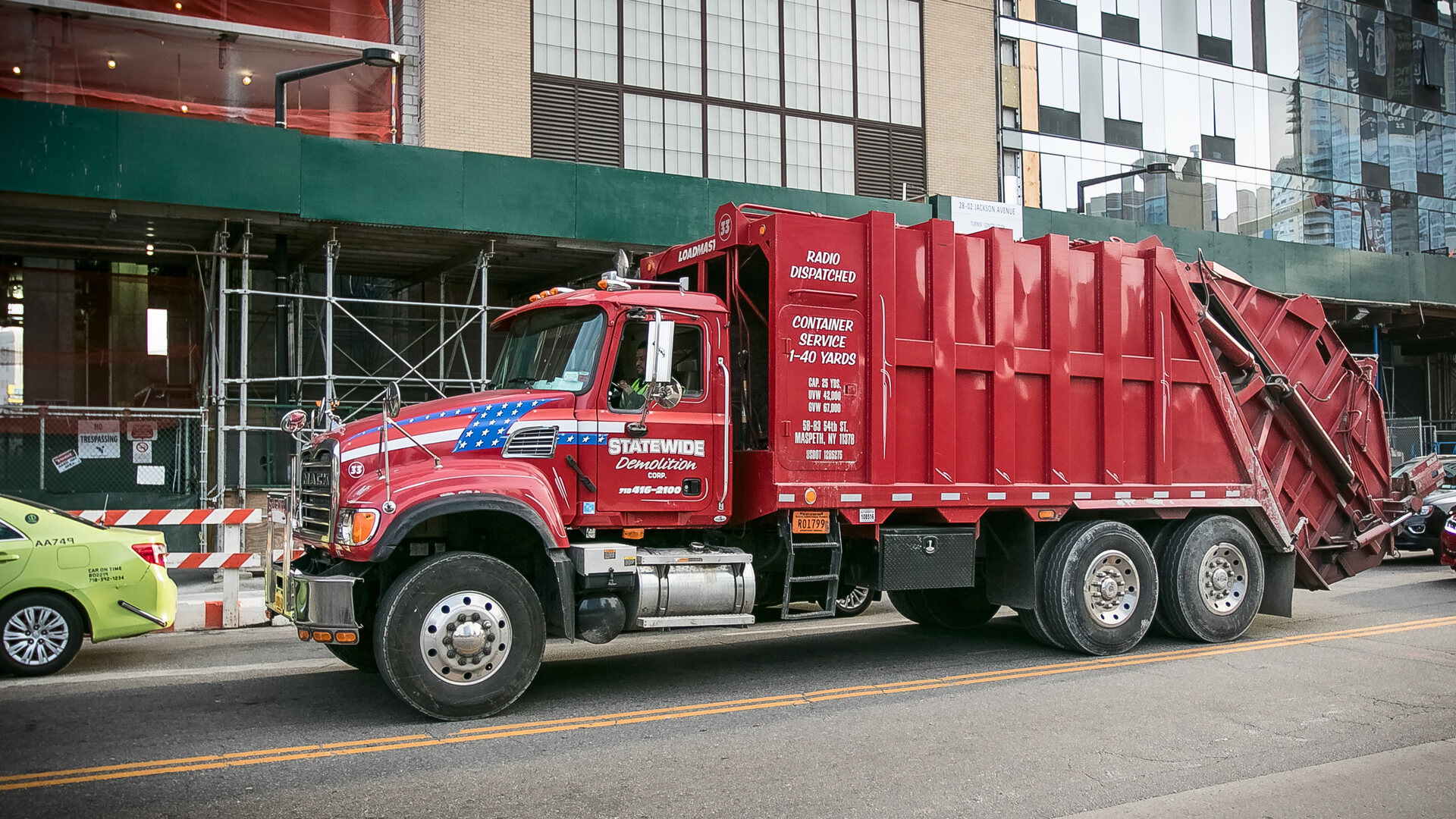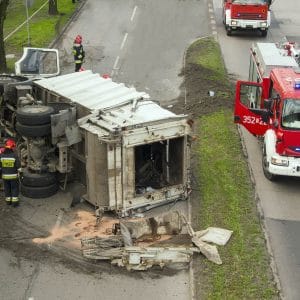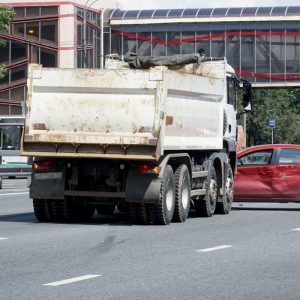New York City Garbage Truck Accidents Remain Deadly

Too many accidents involving New York City garbage trucks end badly, even when no one dies. This remains true since many of these large sanitation trucks weigh about 72,000 pounds. Pedestrians, motorcyclists, bicyclists — and even passenger vehicle occupants — rarely escape major injuries after being hit by one of these massive vehicles. Even smaller garbage trucks weighing between 50,000 and 60,000 pounds often wield deadly force when they hit the average American passenger car that weighs between about 2,600 and 4,400 pounds.

Residents of all five New York City boroughs remain deeply concerned about garbage truck accidents and are eager to help prevent similar events from occurring in the future.
Here are some promising safety suggestions that should help better protect all New York City residents and visitors from becoming victims in one of these tragedies. Nearly all of these ideas were published by the City of New York’s Business Integrity Committee (BIC) in its recent publication entitled, “Trade Waste Safety Manual.”
Sanitation and Garbage Truck Safety Improvements
- Suggestions related to proper driver training and basic qualifications
- All sanitation or garbage truck drivers must receive proper safety training
shortly after being hired. Skills taught must include proper lifting of loads, how to avoid collisions with people and other vehicles, and “safe hopper” operations. This “hopper” part of a truck is also referred to as the “compacter” if a “packer blade” is used. All trainees should be required to demonstrate what they have learned while driving one of the garbage trucks.
- All sanitation truck drivers must be expressly encouraged to obtain at least seven to eight hours of sleep at night. Statistics prove that driver fatigue, sleep apnea, and various sleep disorders often play a role in driver accidents. Therefore, employers are encouraged in the Trade Waste Safety Manual to consider hosting a low-cost or free sleep apnea screening. This can help all new or experienced drivers obtain the medical sleep care they need while cutting down on accidents caused by daytime drowsiness.
- All drivers must be warned that no alcohol or drug abuse will be tolerated. No one has the right to drive heavy trucks and other machinery when under the influence of drugs, alcohol, or other substances that can slow down their physical reaction time or impair their reasoning capabilities. Truck driver supervisors must be told about all prescription and OTC (over-the-counter) drugs being taken by each driver. Penalties should be seriously considered if this standard is violated even once.
2.Driver and waste company responsibilities for proper truck inspections & maintenance
Each day a garbage truck is driven, a DVIR (Driver Vehicle Inspection Report) must be filed before the driver leaves his/her shift.
- Prior to taking any garbage truck out during the new shift, the driver must always review the assigned truck’s DVIR from the prior day – and then make a personal inspection of the truck to be sure no clear dangers were overlooked. If any serious safety issues are discovered, a different truck must be assigned while that first one is repaired. Before leaving on the new shift, the driver must sign the paperwork, indicating that the earlier day’s DVIR was reviewed. All such documentation should be kept on file.
- Daily safety checks of the garbage truck must be performed before any driver leaves the waste company’s building. The driver must check on the condition of the tires, horn, windshield wipers, mirrors, brakes, and other crucial equipment. A similar, thorough inspection must be completed before the driver leaves each day. Supervisors should try to teach drivers acceptable routines to help them handle this crucial duty in an efficient manner.
- Types of simple repair needs that can require removing a truck from service on any given day must be discussed with all drivers. These can include such simple problems as broken seatbelts and even difficulty with simply starting the truck.
- Regular, complete maintenance of all trucks must be scheduled. 3. Driver responsibilities while out on the road and responding to traffic
All traffic signals, speed limits, and road signs must be obeyed – without exception.
- New York City garbage truck drivers must slow down before exiting any alley or driveway and should be ready to tap their horn to make their presence known to any pedestrians or others in view.
- No cell phone usage of any kind will be tolerated. If any type of call must be made to the truck driver’s supervisor, that should be handled on a device provided by the company, and such calls should only be made when not actively driving in traffic (whenever possible).
- Sanitation drivers should minimize all time spent speaking with any pedestrians or others who signal to them on the street. They should pull over and park safely during such conversations and continue them for a brief time.
- Any garbage truck driver caught speeding or driving under the influence of any drug or alcohol should be called in and immediately reprimanded. Each company must determine if immediate suspension or firing is appropriate, especially after a serious or deadly accident or collision has occurred.
Community activism remains important when trying to get new traffic laws passed that can help better protect all of us against careless and dangerous garbage truck drivers. Always be willing to copy down the truck license number of any public or private garbage truck driver and call it into that person’s employer. Also, be prepared to file a formal complaint since such proactive behavior can help save lives.
If you have suffered serious injuries due to a garbage truck accident caused by someone else’s negligence, you need to contact our New York City garbage truck accident law firm. We will carefully investigate all the facts of your case, review all your medical records, and then fight hard to win the maximum compensation available to you. We want every client to fully recover for all lost wages, pain and suffering, medical expenses, and other losses.




 Each day a garbage truck is driven, a DVIR (Driver Vehicle Inspection Report) must be filed before the driver leaves his/her shift.
Each day a garbage truck is driven, a DVIR (Driver Vehicle Inspection Report) must be filed before the driver leaves his/her shift. All traffic signals, speed limits, and road signs must be obeyed – without exception.
All traffic signals, speed limits, and road signs must be obeyed – without exception.